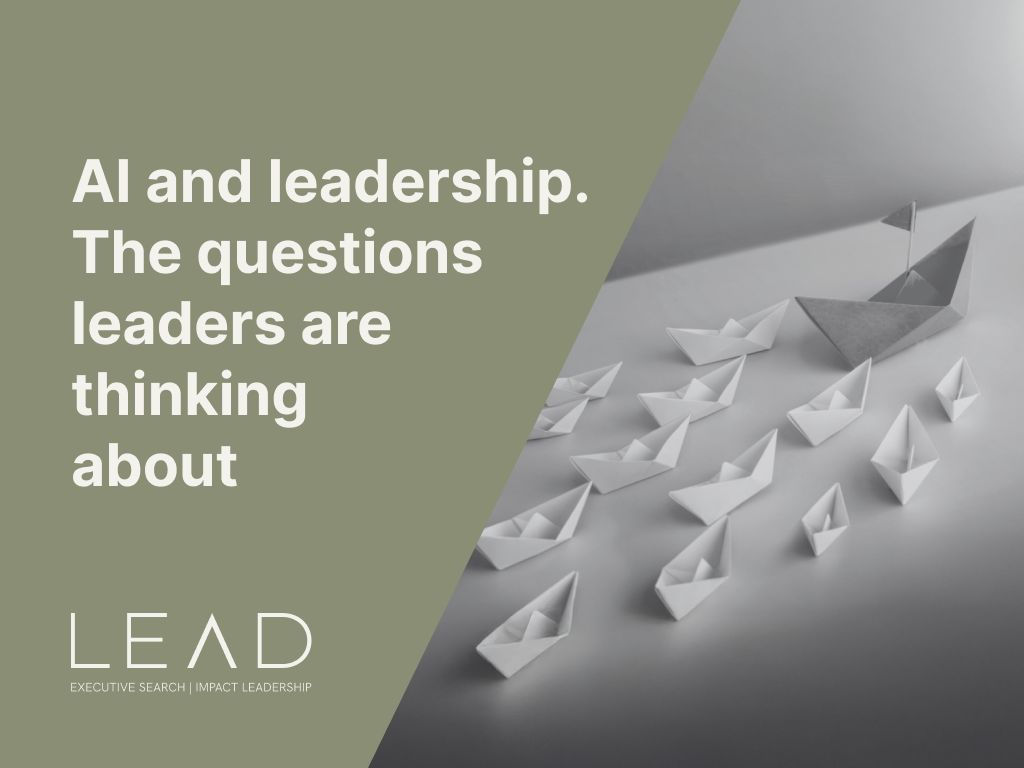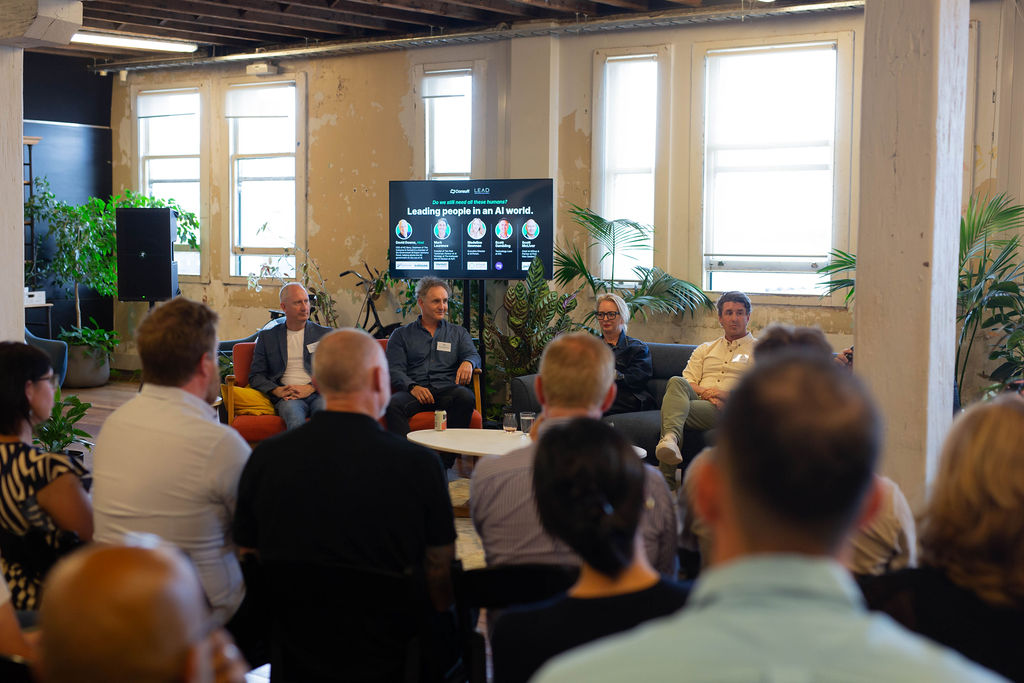AI is reshaping the way organisations operate, innovate and compete. From AI-driven insights that guide strategic decisions to automation transforming entire workflows, the impact is being felt across every sector.
At LEAD Executive Search, we’re seeing a shift in the conversations happening in boardrooms and executive teams. The question is no longer “Should we invest in AI?” It’s: “Do we have the leadership capability to make the most of AI?”
Why AI has become a leadership priority
For years, technological change was delegated to IT departments or innovation labs. AI is different. AI is not just a technology issue. It is both a leadership challenge and an opportunity.
AI changes not only what we do but also how decisions get made. It redefines roles, reshapes competitive dynamics and introduces ethical and cultural considerations that touch every part of an organisation.
This means today’s leaders must be digitally fluent enough to:
- Understand the possibilities and the limits of AI
- Assess risk alongside opportunity
- Make strategic choices about where AI delivers value
- Lead cultural change so that adoption is embraced, not resisted
Like many aspects of modern leadership, leaders are challenged to:
1. Invest in AI while managing risk
Leaders must champion AI initiatives that unlock efficiency and innovation, while also putting governance, security and ethical guardrails in place.
2. Build AI teams while upskilling existing leaders
AI cannot be fully outsourced. It requires both new hires with digital expertise and development of your current leadership’s AI literacy.
3. Make faster decisions with AI insights while keeping human oversight
AI enables quicker and smarter choices but human judgement remains essential. Leaders must know when to challenge the data, and when it requires human input and oversight..
4. Drive productivity while protecting culture
Automation is powerful but if it erodes trust or strips meaning from work, it backfires. Leaders need to design AI adoption in ways that free people up for more impactful, human-centred work.
The AI questions boards and executives are asking
In every industry we see boards and executive teams asking the same critical questions:
- Do we have the right leadership capability to integrate AI responsibly?
- How should we measure AI? In terms of ROI, risk or long term value?
- How do we recruit or develop leaders who understand AI without being technical specialists?
- What cultural shifts are needed to ensure AI adoption sticks?
- How do we stay competitive if others move faster than us?
These are not IT questions. They are leadership questions.
Building AI-ready leadership teams
So what does it take to prepare leadership teams for the AI era? From our work with boards and leaders, three strategies stand out:
1. Recruit for curiosity & adaptability, not just credentials
Few executives will arrive with decades of AI experience. What matters is curiosity, adaptability and a willingness to learn. Look for leaders who ask sharp questions, embrace experimentation and are open to rethinking assumptions.
2. Invest in AI capability building
AI literacy needs to exist at every level, from boards through to emerging leaders. This could mean reverse mentoring programs where digital natives teach executives, dedicated AI training for directors or embedding AI considerations into leadership development.
3. Embed AI into strategy, not just IT
AI must be owned by the business, not siloed in a technical function. Forward thinking organisations are making AI a standing item at board level and integrating it into financial, operational, and people strategies.
The future of leadership is AI-Ready
If your organisation is asking “Are we AI-ready?” the best place to start is with leadership.
The leaders who thrive in this next decade will not be those with all the technical answers but the ones with the mindset to lead transformation.
They will know when to act boldly and when to pause. They will balance innovation with responsibility. They will build teams that are both digitally fluent and deeply human.
At LEAD Executive Search, we are already helping boards and organisations identify and connect with AI-ready leaders – executives who combine commercial acumen with digital curiosity and who are equipped to navigate the complexity of AI adoption.
Get in touch with us to explore how we can help you identify, assess and develop leaders who will thrive in the age of AI.
Follow us on LinkedIn to stay updated with the latest insights, news and opportunities from LEAD.
About LEAD Executive Search
LEAD Executive Search | Impact Leadership connects transformative and impactful leaders with opportunities across New Zealand and beyond. With a belief that the best leaders are rarely on the market, LEAD builds deep talent networks to support succession planning, growth and organisational evolution.
LEAD — Tomorrow’s Leaders. Today.



